May 23, 2023
I'm often asked if I have a mentor.
Well…do I?
Not really, I suppose – at least not in any significant or traditional sense of the word. Sure, I've had plenty of wise people over the years who have graciously shared their advice with me from time to time, but I've never really had that one person, or two, or three, who I would consider to be Obi-Wan Kenobi, my Socrates or my Morpheus, so to speak – that person I call on the phone at midnight with my most pressing of life's questions and conundrums.
Unless, that is, you count the thousands upon thousands of *literary* mentors found upon the bookshelves crowded tightly throughout my house, or digitally lurking within my Kindle, Audible player, and electronic devices.
As a matter of fact, I would estimate – especially because I was homeschooled with a relatively “free-learning” style approach – that approximately 80% of what I know about business, health, personal productivity, adventuring, investing, education, parenting, fitness and the like – has been derived from simply reading books. Every day. For most of my life, or at least since I was around four years old.
In many cases, I accomplish near-manic digestion of information, including books, through the use of services, websites, journals, newsletters, and digests that disseminate information into readily accessible bite-size pieces that allow me to cut through the clutter and quickly get to the main summaries, takeaways, and actionable items from all the content. Lately, I've even been using ChatGPT to summarize books for me (e.g. with a prompt such as “You are a book summarizer. For the book [insert title and author here], you will create a one-paragraph summary of each chapter followed by a bulleted list of the key points in each chapter. When summarizing, do not elaborate further than the single paragraph and bulleted list for each chapter. If you understand, please respond with yes without elaborating.”).
Regarding “digests” I’m a huge fan of these types of quick-to-digest book reviews produced by guys such as Derek Sivers and James Clear. Another great resource for getting through the world’s best books f-a-s-t is the fantastic app/website called “Optimize”, which focuses specifically on improvement-based genres like health, wealth, spirituality, and philosophy. I've also discovered great utility with the service Scribd (for audiobooks and book summaries alike) the plug-in Eightify (for Youtube summaries) and the website Blinkist (for quick 15-minute insights).
But there is ONE shelf in my office and ONE saved library on my Kindle for books I want to come back to over and over again, usually to read in full. These are books with folded-over, tattered pages, heavily underlined sections, and oodles of highlights because I often read them each year.
These are books that have changed my life.
These are books that have shaped who I am.
These are books I will gift to my sons.
These are books you need to read, and not simply read a summary of.
So I now introduce to you…
…my mentors: the top 25 books I think everyone should read before they die.
1. Poor Charlie’s Almanack by Charlie Munger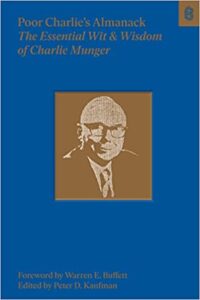
Though my roomate in college was a vacuum cleaner salesman with an impressive library of sales and body language books, most of which I read, it was “Poor Charlie” who first taught me exactly how to work and communicate with human beings, identify rational and irrational behavior in self and others, and make wise decisions. This book is a compilation of speeches, essays, and insights by renowned investor Charlie Munger, the vice chairman of Berkshire Hathaway. It revolves around Munger's philosophy of life, investing, and decision-making, emphasizing the importance of mental models, multidisciplinary thinking, and lifelong learning in achieving success. This one can be a bit hard to find or expensive, but it's worth owning nonetheless.
2. Stillness Is The Key by Ryan Holiday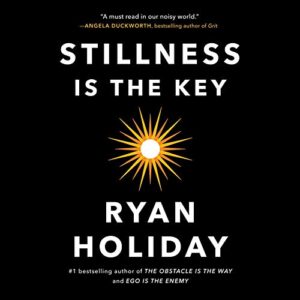
This is my favorite book of Ryan's, and, in my opinion, an underrated title. Drawing from historical figures, philosophical teachings, and practical examples, Ryan Holiday highlights the value of cultivating a calm mind and mastering self-discipline in order to make better decisions, maintain emotional balance, and enhance overall well-being. Warning: this book will slow you down and change your routine significantly. And that's a good thing.
3. Tribe of Mentors by Tim Ferriss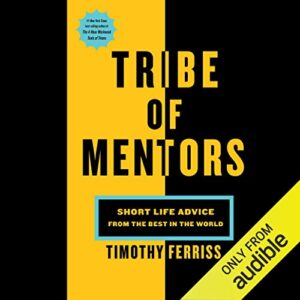
Tribe of Mentors is a collection of short, impactful advice from a diverse group of successful people, curated by Tim Ferriss: including Naval Ravikant, Susan Cain, Yuval Noah and many other deep thinkers. I would imagine the title of this book likely reflects Tim's same feelings about books serving as ultimate, readily accessible and affordable mentors. Covering personal development, career guidance, and life philosophy, the book offers readers a variety of perspectives and practical tips to help them navigate life's challenges and achieve success on their own terms.
4. Tools of Titans by Tim Ferriss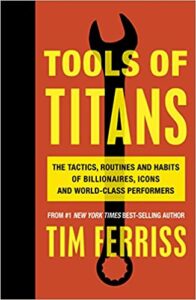
In Tools of Titans, Tim Ferriss distills lessons, habits, and routines from highly successful individuals he has interviewed on his podcast, The Tim Ferriss Show. Seems like a great idea to me and a good use of podcast time spent recording anyways with folks such as Derek Sivers, Jamie Foxx, and Arnold Schwarzenegger. The book provides actionable insights on topics such as health, wealth, and wisdom, aiming to help you optimize your life and achieve your goals. Fun fact: this book, and Tribe of Mentors (see above) served as my inspiration when crowdsourcing my new title Boundless Parenting and asking an identical set of 32 questions to dozens of successful parents from around the world.
5. Letters to His Son on the Art of Becoming a Man of the World and a Gentleman by Lord Chesterfield
Published in 1774, Letters to His Son on the Art of Becoming a Man of the World and a Gentleman is a collection of letters written by Lord Chesterfield to his son, Philip Stanhope, providing guidance on etiquette, manners, and personal development. The letters emphasize the importance of politeness, moral conduct, and social skills in order to navigate the complexities of 18th-century society and achieve success as a true gentleman. A few of Chesterton's more notable sayings from this book include “The power of applying attention, steady and undissipated, to a single object, is the sure mark of a superior genius.”, “Prepare yourself for the world, as the athletes used to do for their exercise; oil your mind and your manners, to give them the necessary suppleness and flexibility; strength alone will not do.”, and of course, the well-known “Whatever is worth doing at all, is worth doing well.”
6. How to Win Friends and Influence People by Dale Carnegie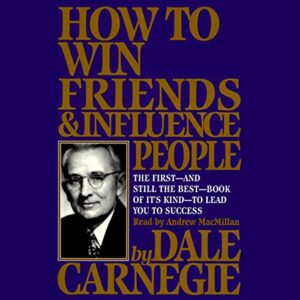
This one is right up there with Poor Charlie's Almanack in terms of one of the first books I read about human interaction, thinking patterns, and communication. In this self-help classic, Dale Carnegie shares timeless principles for building relationships and influencing others. The book emphasizes the importance of empathy, effective communication, and genuine interest in others in order to win friends, persuade people, and ultimately achieve personal and professional success.
7. 101 Essays That Will Change The Way You Think by Brianna Weist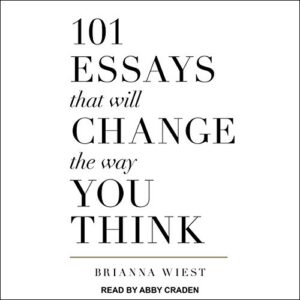
Brianna Wiest's 101 Essays That Will Change The Way You Think is a thought-provoking collection of essays on personal growth, self-awareness, and mindful living. The book encourages you to challenge your perspective, examine your beliefs, and embrace change in order to live a more fulfilling and authentic life. I recently read this book, along with The Creative Act (see below) at a rate of two chapters per evening, while lying in bed, and consider them to be great bedtime books for life inspiration and wisdom pre-sleep.
8. The Creative Act by Rick Rubin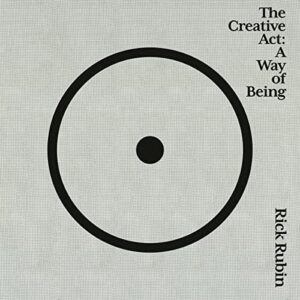
In The Creative Act, my friend Rick Rubin, who appeared on the podcast shares his insights and experiences from a successful career in the music industry as a producer and co-founder of Def Jam Recordings. The book offers you guidance on harnessing your creativity, overcoming obstacles, and embracing collaboration in order to develop your unique artistic voice and achieve success in your chosen field. My sons and I often read a book together and share with each other each week what we have learned, and this is one recent example.
9. The 7 Habits of Highly Successful People by Stephen Covey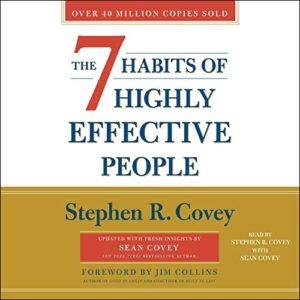
A must-read for personal productivity, Stephen Covey's international bestseller and well-known classic, The 7 Habits of Highly Effective People, outlines a set of powerful principles for personal and professional growth. Through these habits, the book aims to help you enhance your productivity, improve relationships, and achieve a balanced and fulfilling life.
This book breaks the mold of the “here's what to do to be happy” category of books. With a focus on the Christian perspective of happiness and joy, Randy Alcorn's Happiness delves into the true meaning of happiness, challenging the misconception that it revolves around fleeting pleasure or shallow emotions. The book encourages you to uncover a more profound, enduring joy by comprehending God's view on happiness, practicing gratitude, and fostering meaningful relationships, ultimately guiding you toward a more purposeful and fulfilling life.
11. Spiritual Disciplines for the Christian Life by Donald Whitney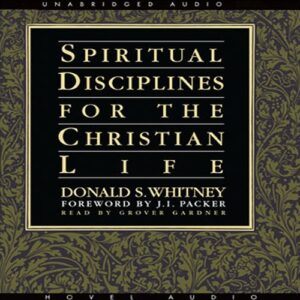
Get ready to strap on your spiritual armour. Donald Whitney's Spiritual Disciplines for the Christian Life, which served as my inspiration for my books Fit Soul and Endure presents an insightful guide to deepening your faith and strengthening your relationship with God through the practice of spiritual disciplines. By exploring various practices such as prayer, meditation, fasting, and Bible study, the book equips you with the tools to grow spiritually, cultivate godly habits, and experience a more intimate connection with God in your daily life.
12. From Strength to Strength by Arthur Brooks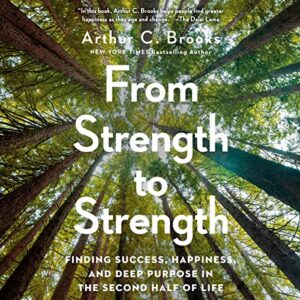
I recently interviewed Arthur for a documentary on happiness (to be released soon!) and was absolutely blown away by his approach to handling the latter half of life. From Strength to Strength offers a fresh perspective on how to find meaning, purpose, and satisfaction in the second half of your life. Drawing on research, personal stories, and timeless wisdom, the book empowers you to redefine success, embrace new opportunities, and cultivate a mindset of growth, ultimately leading to a happier and more fulfilling life as you age.
13. Don’t Waste Your L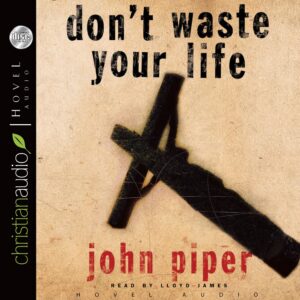 ife by John Piper
ife by John Piper
Ever feel like you might be thinking when you're eighty years old tooling a golf course and eating at a steakhouse that “there must be something more to life than this”? Then read this book. In Don't Waste Your Life, John Piper challenges you to consider the ultimate purpose of your life and make choices that align with your deepest values and faith. By examining biblical principles and sharing his own journey, Piper inspires you to live a life of passion and purpose, focused on glorifying God and making a meaningful impact in the world around you.
14. Turning Pro by Stephen Pressfield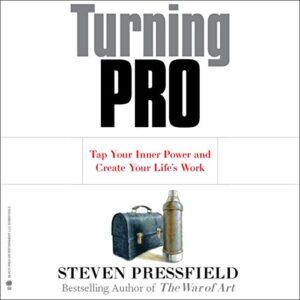
Anyone who wants to create anything (yep, that's you) needs to be familiar with all the works of Stephen Pressfield, especially this one and the one below it. In Turning Pro, Stephen discusses the transformation from being an amateur to a professional in your chosen field, emphasizing the importance of commitment, discipline, and focus. The book motivates you to conquer self-doubt, develop resilience, and embrace the habits and mindset necessary for achieving success and personal fulfillment in your creative endeavors.
15. Do The Work by Stephen Pressfield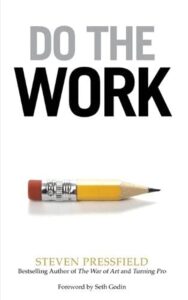
Do The Work is another inspiring work by Stephen Pressfield that offers practical advice on overcoming resistance and self-sabotage in order to bring your creative projects to life. The book provides valuable insights and strategies to help you push through obstacles, maintain momentum, and ultimately complete your most meaningful work.
16. The Tao Of Leadership by John Heider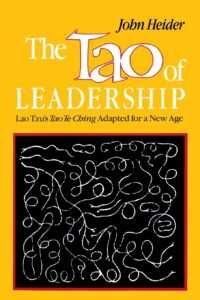
The Tao of Leadership by John Heider is an insightful guide on leadership inspired by the ancient wisdom of the Tao Te Ching. The book encourages you to develop a deep understanding of yourself and others, practice humility, and foster a harmonious environment to effectively lead and inspire those around you. By embracing the principles of the Tao, you can cultivate a leadership style rooted in balance, simplicity, and adaptability. A few of my favorite quotes from this book include: “In dwelling, be close to the land. In meditation, go deep in the heart. In dealing with others, be gentle and kind. In speech, be true. In ruling, be just. In daily life, be competent. In action, be aware of the time and the season.”, “Governing a large country is like frying a small fish. You spoil it with too much poking.”, and one that I'm still working on myself, “A good traveler has no fixed plans, and is not intent on arriving.”
17. Soul Keeping by John Ortberg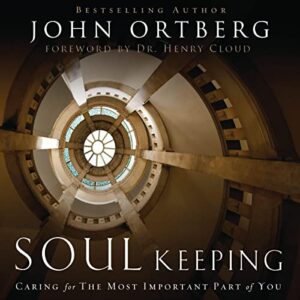
John Ortberg is one of my favorite spiritual authors. His book Soul Keeping delves into the often-neglected topic of caring for one's soul, emphasizing the importance of spiritual nourishment and growth. The book guides you to cultivate a deeper relationship with God, invest in meaningful connections, and maintain a healthy inner life, ultimately ensuring the well-being of your soul in the midst of life's challenges and distractions. I've said for some time now that we are a “soul with a body”, not a “body with a soul”, and this book inspired that saying.
18. The Book Of Proverbs in the Holy Bible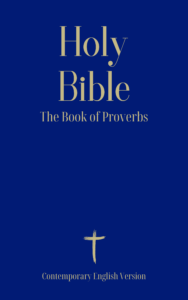
The Book of Proverbs, found in the Holy Bible, is a collection of wise sayings, teachings, and moral guidance attributed primarily to King Solomon. By exploring various aspects of life, such as relationships, wealth, and character development, the proverbs offer you practical wisdom and timeless advice to navigate life's complexities and make wise decisions grounded in faith and understanding. As a matter of fact, at a cadence of two verses per week, which is our usual cadence for Bible memorization, my family and I are currently memorizing Chapter 3. Since this book has 31 chapters, one good way to consume it is by reading a chapter each day that corresponds to the day of the month.
19. The Book Of Ecclesiastes in the Holy Bible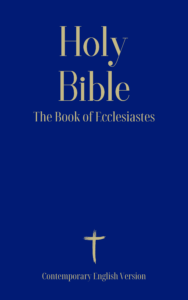
In my opinion, this book contains the best answer to “What is the meaning of life?” question that I've ever found. Found in the Holy Bible, the Book of Ecclesiastes presents a profound exploration of the meaning of life and the nature of human existence. Often attributed to King Solomon, this philosophical text delves into the fleeting nature of earthly pursuits and encourages you to seek wisdom, enjoy simple pleasures, and ultimately find purpose in a deep connection with God.
In So Good They Can't Ignore You: Why Skills Trump Passion in the Quest for Work You Love, Cal Newport challenges the conventional wisdom of following your passion to find a fulfilling career. Instead, he argues that cultivating valuable skills, seeking mastery, and adopting a craftsman mindset are the keys to achieving success and happiness in your professional life. Through this approach, Newport aims to guide you in creating a satisfying and meaningful career on your own terms. It was tough for me to choose between this book and Cal's other: Deep Work. Oh, what the heck: read both. You won't be sorry.
21. Atomic Habits by James Clear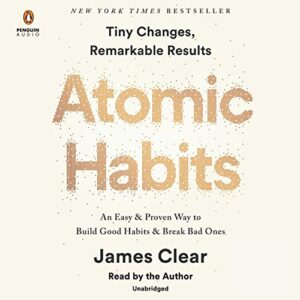
There are plenty of habit books out there. Charles Duhigg's Power of Habit and B.J. Fogg's Tiny Habits are two of my favorites. But James Clear's Atomic Habits is probably the most applicable modern title for changing, breaking and establishing patterns, and his method just works. It provides a comprehensive framework for building good habits and breaking bad ones by focusing on small, incremental changes. By emphasizing the power of compound growth, the book helps you understand how tiny adjustments in your daily routines can lead to remarkable results over time, ultimately transforming your life and ensuring long-lasting success.
22. 12 Rules For Life by Jordan Peterson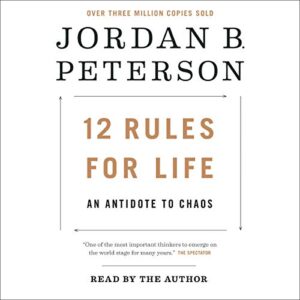
In 12 Rules for Life, Jordan Peterson combines insights from psychology, philosophy, and personal experiences to offer a set of guiding principles for living a more meaningful and fulfilling life. Each rule encourages you to confront life's challenges, take responsibility for your actions, and develop a deeper understanding of yourself and the world around you, ultimately helping you to navigate the complexities of modern life with wisdom and resilience. You're never too young to read this one: my sons read it cover to cover and wrote a 12 page book report on it when they were nine years old. So there. Now you have no excuse.
23. The 48 Laws Of Power by Robert Greene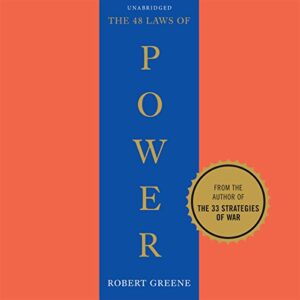
Robert Greene's The 48 Laws of Power is a captivating exploration of power dynamics and manipulation strategies, drawing from historical figures, philosophical teachings, and real-life examples. The book presents a set of distinct “laws” that provide you with a deeper understanding of how power works and how to wield it effectively, whether in personal relationships or professional situations, ultimately aiming to enhance your influence and control over various aspects of life. I find the tactics I've learned in this book very handy for negotiating prices, managing deals, and leveraging situations to my advantage when necessary – all in an ethical and loving way of course, but in a way that as the Bible would say is “wise as a serpent”.
24. Thinking Fast And Slow by Daniel Kahneman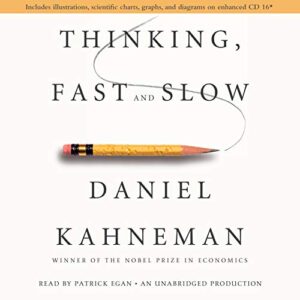
Do you ever make decisions? Ever? Then read this. Thinking, Fast and Slow by Daniel Kahneman delves into the dual-process theory of human cognition, exploring the contrast between intuitive, automatic thinking (System 1) and deliberate, analytical thinking (System 2). The book highlights how these two systems shape our judgments, decisions, and behavior, and offers practical insights on how to overcome cognitive biases and improve your decision-making skills in various aspects of life.
25. Principles: Life & Work by Ray Dalio
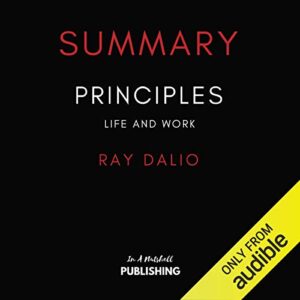
Ray Dalio's Principles: Life & Work offers a unique perspective on achieving success by sharing the principles that have guided the author in his personal and professional journey. The book encourages you to develop a set of clear values and principles, embrace radical transparency, and continuously learn from your experiences, ultimately helping you make better decisions, overcome challenges, and lead a more meaningful and fulfilling life. It served as the inspiration for my recent article on health principles that you can read here.
So there you have it.
These are the mentors that have most shaped my life. You can click here for an Amazon library pre-populated with all of them, if helpful.
Now I'd love to hear your favorites, so let me know in the comments section below.
Oh, and one last thing: as you embark on the journey of exploring the book in this list, or creating your own, I recommend putting some time into how you read to complement what you read. I suggest you start with this blog post: “How to Remember What You Read,” in addition to using the tools I mentioned at the beginning of this article you're reading right now.


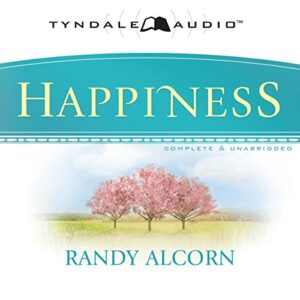
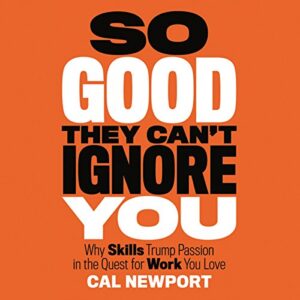 mp Passion in the Quest for Work You Love by Cal Newport
mp Passion in the Quest for Work You Love by Cal Newport
This is a great list. Thanks for sharing! The ones on the list I’ve read, I agree they are worth checking out, so I’ll be trying to work my way to and through the others.
For those who find John Piper’s short work Don’t Waste Your Life helpful, I would recommend his Desiring God (and the website, desiringgod.org).
Great compilation! I have printed it out for future reference. One book that comes to mind for me is Pema Chodron’s “Things Fall Apart” . For the first time I was ok with not being ok.
Interesting selection! Thanx for sharing. It’s a very nice Blog!
Great book I am reading is OUTLIVE The Science & Art of Longevity by Peter Attia, MD.
It discusses Lifespan and health span., and how they are more malleable than we think.
I am of the age that those around me are talking about getting diabetes, having cardio issues, getting cancer or neurodegenerative issues (the 4 Horsemen). We can actively work to prevent these things from happening.
Powerful book.
On the subject of happiness I would recommend (Stumbling on Happiness by Daniel Gilbert. very scientific and informative!
Meditations?
Thank you for sharing that treasure trove of valuable tools!!! I’m diving in.